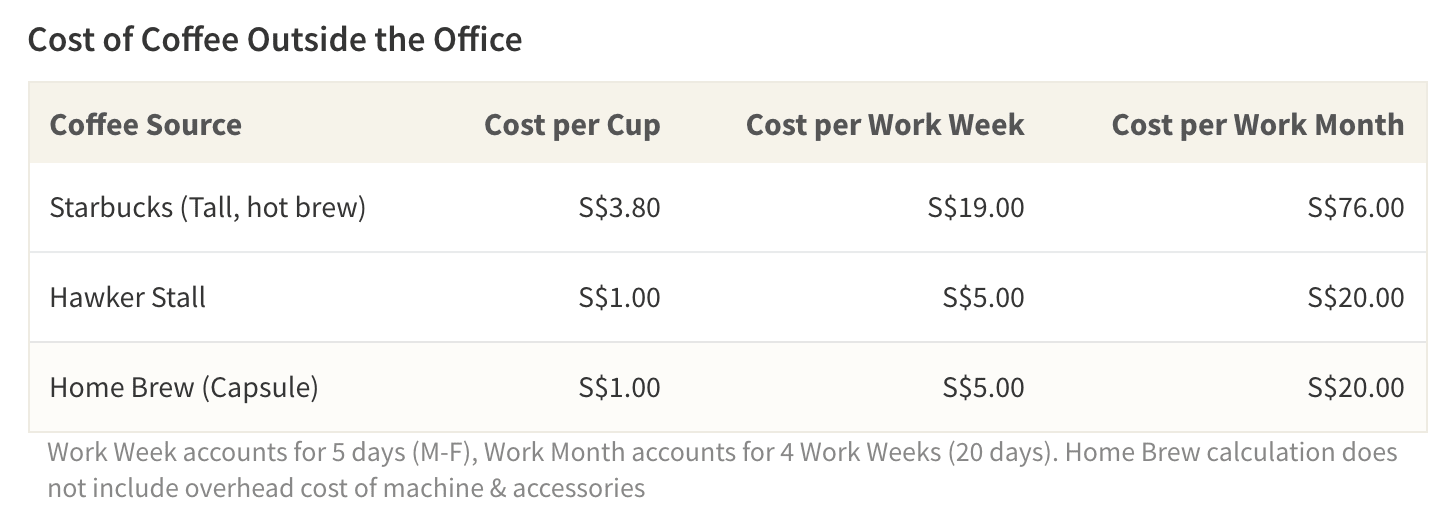3 Ways Employers Can Boost Office Productivity
Office settings can have a surprisingly strong impact on employee performance. With the right combination of atmosphere and perks, it's possible to improve productivity without implementing massive changes in company policy. These 3 recommendations can improve employee performance and potentially, quality of life–all without requiring extensive effort on the behalf of the employer.
1. Bump Up the Temperature
Even while many aircon servicing companies recommend maintaining a temperature between 24–25°C, some companies–both in Singapore and abroad–maintain office temperatures below 20°C. Such low settings not only drive up electricity bills, harm the environment, and reduce aircon lifespan–they can also damage workplace productivity. In fact, according to research by Cornell University, the optimal temperature for workplace productivity is 25°C. In the corresponding study, employees demonstrated a 44% decrease in typing errors and 150% increase in typing output when temperature increased from 20°C to 25°C.

Office temperature can have a particularly strong impact on women. In a recent study, females' accuracy increased by nearly +2% on math and +1% on verbal tasks with each 1°C increase in room temperature. While men's performance decreased slightly, women's gains were proportionally greater. Overall, employers in colder offices might achieve a net boost in productivity by keeping the thermostat at a warmer temperature.
2. Provide Free Coffee & Snacks
Surprisingly, drinking coffee and consuming healthy snacks can measurably boost employee performance as well. An extensive amount of research has shown that caffeine can significantly boost productivity, with benefits ranging from sharpening focus to boosting team engagement and cooperation. Providing snacks is also a great option. Short snack breaks can improve the brain's ability to consolidate ideas, and healthy options (like fruits and vegetables) can even boost happiness and creativity.
In addition, these benefits can boost morale by saving workers time and money. Starbucks loyalists may be able to save S$75+/month if they opt for workplace coffee; those who brew at home or pick up coffee at stalls can save on time and convenience. Similarly, free snacks can potentially reduce employees' grocery bills or even dining expenses.

If supplying the entire workplace with free coffee and food just isn't sustainable, managers might instead consider taking their team out for lunch a few times a month. Depending on the company, it may be possible to pay on a personal credit card, and then have the expense reimbursed. This allows managers to both treat their team and earn credit card rewards. However, it's always important to check company policy first.
3. Shorten the Workday
Finally, long hours don't always translate into greater productivity. In fact, a UK study found that of 1,989 office workers, 79% stated they weren't productive for the full workday–even further, participants estimated (on average) just 2 hours and 53 minutes of actual productivity per day. Extended work hours also detract from employees' free time, limiting their ability to pursue hobbies and interests. Shortening the workday and allowing for more leisure time may boost happiness and quality of life–which research suggests can actually boost productivity by 12%. While it may seem counterintuitive, cutting a few hours off of the workday may be better for both employees and the company's bottom line.
Employees: Stand Up for Yourselves
If your office isn't ready to implement such changes, you can still take actions to improve your wellbeing while also boosting your productivity. Here are a few suggestions:
- Temperature: Even if the aircon is running, ask if you can open a window. "Mixed mode ventilation" combines air conditioning with natural breeze to provide greater flexibility in setting the temperature (good for you) while also lowering the office's electricity bill (good for your company).
- Snacks: Even if coffee and snacks aren't free, take a break and treat yourself. Short breaks relieve stress and help you to focus, and by thoughtfully managing your spend–whether through loyalty programs or credit card promotions–you can often enjoy discounts on meals.
- Long Hours: While you may not be able to control the length of your workday, you can–and should–make the most of your paid time off. Research has shown that working during your vacation days can actually decrease your productivity in the long run.
